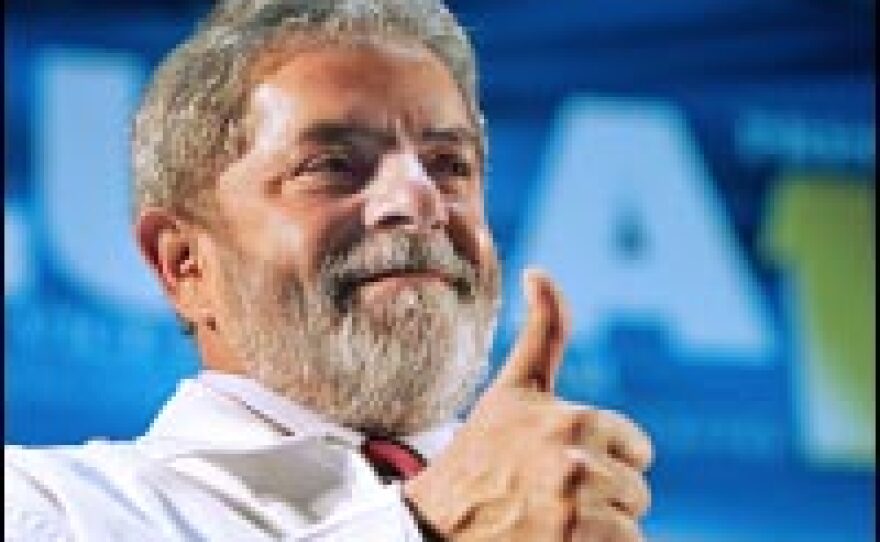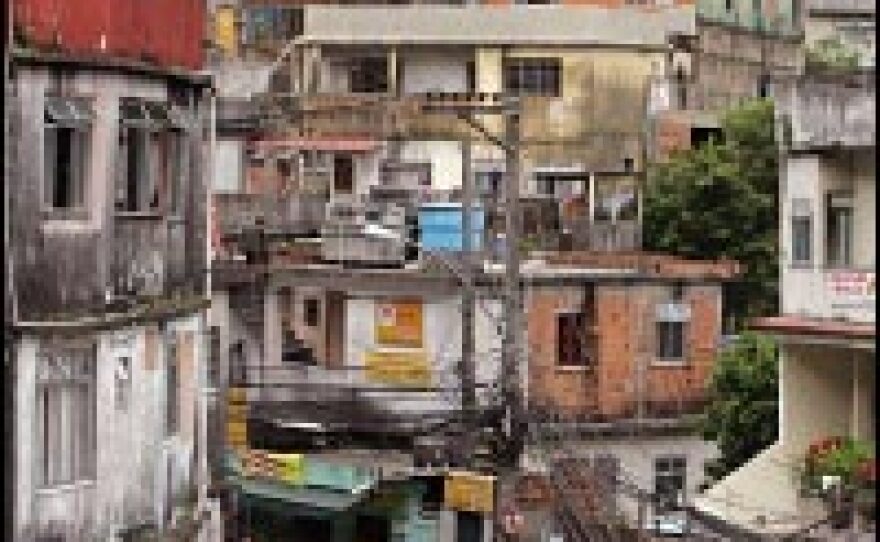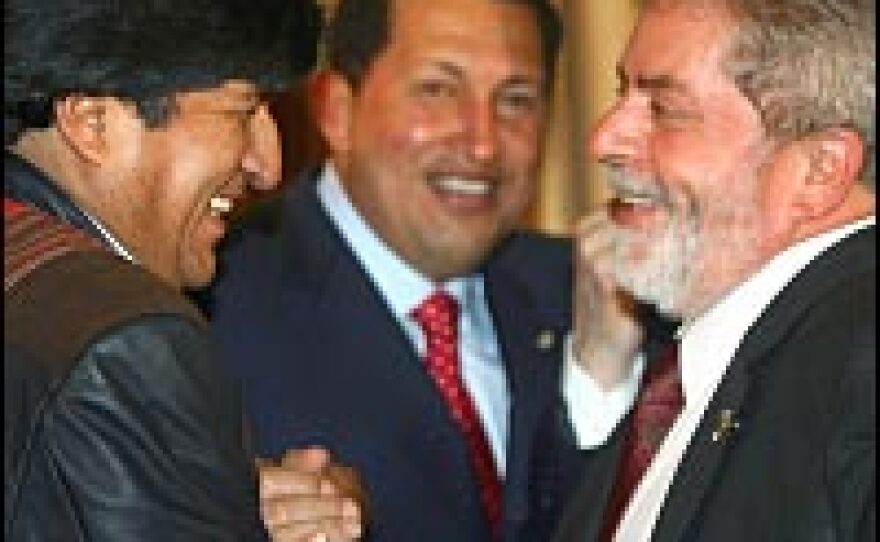



Disillusionment with limited social progress and free-market reforms swept Luiz Inacio Lula da Silva to power in 2002. Brazil's first working-class president, a favorite with Brazil's poorer voters, promised clean government and a fairer distribution of wealth.
Critics charge that, once in power, Lula did little more than follow the centrist policies of his predecessors even as his own party became swamped in scandal. Now the pragmatic "man in the middle" faces a challenge from his more ardently leftist ally Hugo Chavez in the international arena.
Lula's promised social reforms have been slow in coming. But Brazil is so fundamentally unequal that, for the poor, even modest advances are milestones. At a recent graduation ceremony for 2,000 adults who just learned how to read, Lula touted booming exports, five million more jobs and low inflation that stretches the value of the minimum wage.
He reaches his audience, many of them dependent on the minimum wage of approximately $150 dollars a month, with anecdotes that remind audiences in impoverished places that he is one of them. In return, they give their alliance and admiration to the simple lathe worker who beat the odds to become president.
But steering Brazil is a formidable task. The country itself is immense, and the World Bank says that one-fifth of the nation -- about 38 million people -- live on less than $2 a day.
The gap between rich and poor has slightly narrowed under Lula's administration, but the disparity remains huge. Brazil's richest 10 percent earns nearly half of the national income, while the poorest 20 percent account for less than 3 percent of earnings. As in the United States, economic inequality falls along racial lines -- and Brazil's long legacy of slavery helps to perpetuate the injustice.
"This is a country that has a history of exclusion," says sociologist Julita Lem-Gruber. "[It's] divided between full citizens and second-, third- and no-class citizens."
Critics charge that Lula has betrayed the very poor who put him in office. Rather than focus on social spending, he paid off International Monetary Fund (IMF) loans and produced budget surpluses. Former Ambassador to the United States Rubens Barbossa says Lula had no other choice:
"The Brazilian risk was too high. The market didn't trust him, and he had no alternative," he says. "[Lula] had to keep the same ... orthodox policies."
But Senator Christovan Buarque, Lula's former education minister, says that economic orthodoxy has come at the expense of human development.
Buarque, who is running for president against Lula this fall, says 22,000 public schools still have no bathrooms. Thirty percent of Brazilians are functionally illiterate, and half of all public schoolchildren cannot read by the time they reach fourth grade; just one-third of students complete high school.
To reverse Brazil's dramatic dropout rate, the government pays parents to keep their children in class. It's a small amount, from $20 to $40 a month, but it can be a lifeline for the poor. Political scientist David Fleischer says that under Lula, 11 million families now receive this "direct transfer of income."
Those small payments can translate into a potent political force.
"We're talking about 40 million voters, which is perhaps close to a third of Brazil's electorate," Fleishcher says. "That program has produced extremely strong support for Lula among the lower classes."
If the poor struggle for education and opportunity, they also struggle to find justice. The favelas, or slums, of Brazil's urban centers are breeding grounds of violence.
Residents are victimized not only by the criminal gangs who often control the favelas, but by police who have earned a reputation as trigger-happy enforcers of a legal system that is stacked against the poor. At least 6,000 people were murdered last year in Rio de Janeiro alone, and an additional 1,000 were killed by police.
Prison gangs in Sao Paulo state penitentiaries brought Brazil's largest city, Sao Paulo, to a standstill last May when they used cells phones in jail to order their foot soldiers on the outside to attack police stations.
The security situation may be worsening, but political analyst Domicio Proenca says it would be "plain silly" for Lula to address it head on. "Why should a president risk a certain re-election [this fall] by entering into something over which he did very little over three-and-half years?"
Foreign policy challenges are also putting pressure on the president. Critics say Lula has abdicated Brazil's traditional role as regional leader to Venezuela's Hugo Chavez.
"We are opening up the agenda for Chavez for a revolution that South America does not need," says international-relations professor Arthur Ituassu. "South America does not need any revolution -- South America does need governments generating public benefits for the population."
Still, it is Lula, with his middle-of-the road course, who is poised for re-election later this fall.
Copyright 2022 NPR. To see more, visit https://www.npr.org. 9(MDAzMjM2NDYzMDEyMzc1Njk5NjAxNzY3OQ001))






